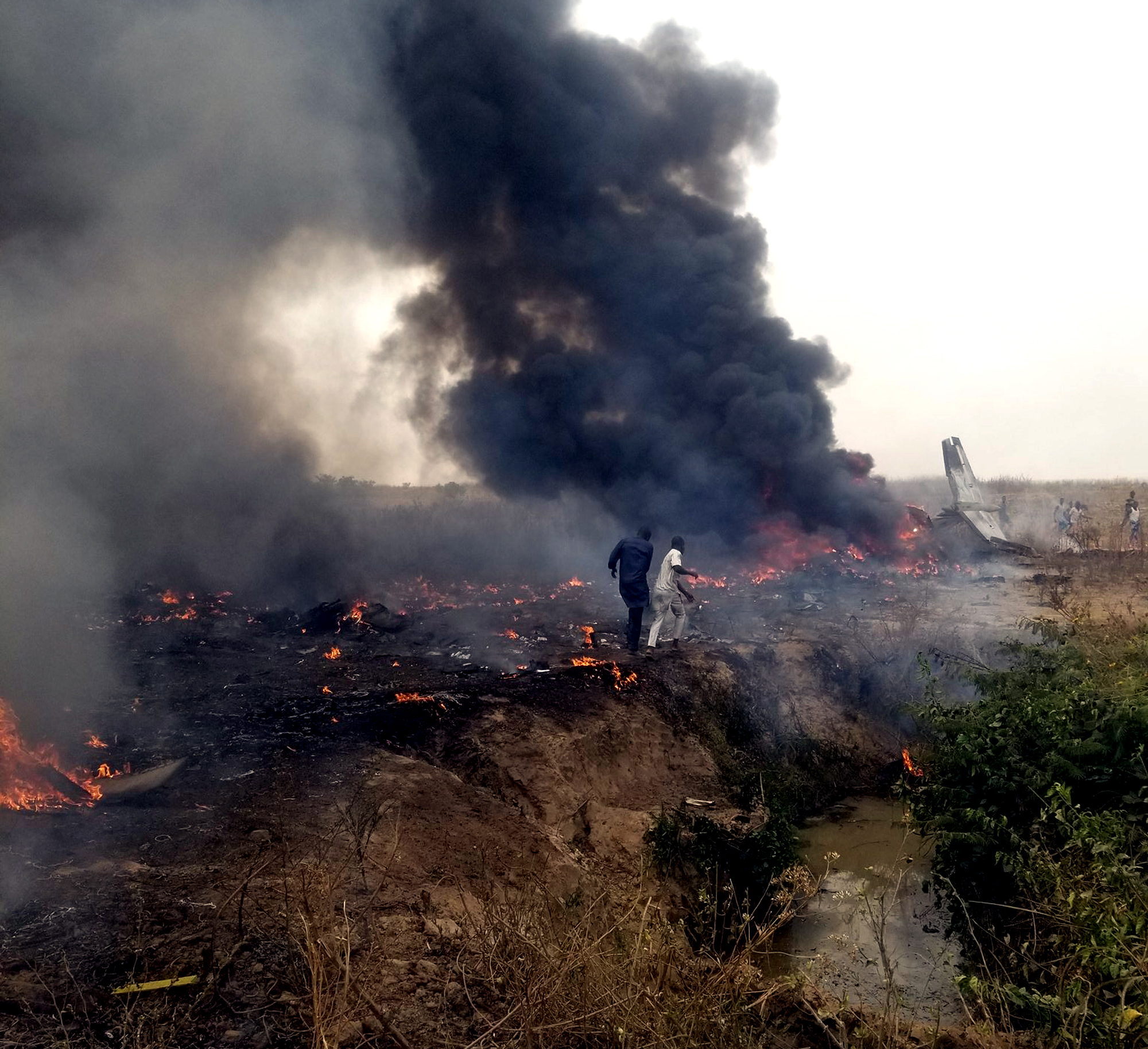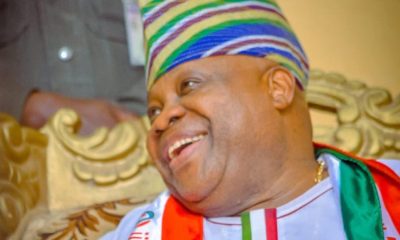NEWS
Private Sector, not Govt, Engine of Economic Opportunities – ACCI Boss

The Abuja Chamber of Commerce and Industry (ACCI) says the private sector, not the government, is the engine of economic opportunities.
The ACCI President, Mr Emeka Obegolu, said this during his inauguration dinner as the 12th President of the ACCI in Abuja.
Obegolu, who said he assumed leadership at a time when Nigeria faced enormous challenges , expressed confidence that the private sector would rise up to ameliorate some of these challenges.
He commended steps being made by the Federal Government to remove subsidy, the unification of foreign exchange market and student loan programme among others.
He said:“ while these measures may have initially tested our resilience, we believe they will, with time, yield the desired results.
“We can only urge the government to deepen the collaboration with the private sector, represented by the chamber of commerce.
“A partnership that has the potential to significantly benefit the business community, the society, and the national economy.
“We must never forget that the private sector, is the engine of economic opportunity; small businesses flourish and can provide good jobs when government acts as a productive partner.’’
According to Obegolu, the ACCI has been on the forefront of fostering economic growth, entrepreneurship, and innovation in Nigeria through its initiatives and entities.
He said the chamber had consistently demonstrated its commitment to driving sustainable development and empowering businesses across diverse sectors.
On security in the country, he said the ACCI would collaborate with the defense and national security leadership, to institute an annual summit on security, defense and business.
The ACCI president said this would review and proffer solutions to the challenges facing us as a nation and foster confidence and assurance that Nigeria was a safe destination for investment.
On vision, Obegolu said his administration would prioritise collaboration with the government, non-state stakeholders and capacity building within the ACCI team.
He said this would enhance management processes for improved efficiency and productivity.
“Ongoing projects initiated by the previous administration will be completed within a stipulated timeframe. We aspire to maximise the investment potential of ACCI assets, adding world-class projects to our distinguished records.
“To strengthen our various departments, financial self-reliance will be promoted, and necessary support provided to achieve their mandates.
“Collaboration with the National Association of Chamber of Commerce, Industry, Mines and Agriculture (NACCIMA) will be intensified, giving the chamber a national outlook to better serve our members.
“As ACCI president, I will do my best to discharge my duties and undertake to respect judgments and advice by council members and EXCO. I could not have asked for a better team. Together we can !,’’ he said.
In his goodwill message, the Deputy Speaker of the House of Representatives, Benjamin Kalu, charged the chamber to come up with programmes that would include youths and women in the society.
“I charge ACCI to draw up programmes that will inspire these set of people so they can contribute to the social, economic development and growth of the society.
“ACCI should also prioritise initiatives that promote and empower our youth and women who are the key drivers of the future economy.
“For those outside Abuja, it should draw up programmes that will include these young ones, who are agitating for one thing or the other.
“Let us have a programme that will give them that sense of inclusion, teach them skills, expose them to opportunities that will make them have confidence in themselves to use their brain not their hands,’’ he said.
Kalu then urged all the chamber of commerce in the South-Eastern region to make programmes that will teach our youths the best ways of developing themselves and impacting on the society positively
He expressed optimism that the new president would lead the sector with integrity, wisdom and strong commitment.
“I wish to inform you that the House of Representatives will always be there; through our various committees of commerce and industry, to support your initiatives
“It will also suggest laws that you think need legislative intervention to make the lives of businessmen in Nigeria easier
“We will partner with you in redesigning the laws of our federal government with regards to commerce and industry.
“Together, let us forge ahead, united in our pursuit of economic progress, society justice and sustainable development,’’ he said.
Reports that some past presidents of the chamber, government officials, heads of private sector, royalties, friends and well-wishers among other dignitaries attended the event. (NAN)
NEWS
Nigeria Condoles India over Tragic Plane Crash

The Federal Government on Thursday condoled the Indian government over the tragic crash of Air India Flight-171 in Ahmedabad.The Minister of Foreign Affairs, Amb. Yusuf Tuggar, disclosed this in a statement issued by Kimiebi Ebienfa, Spokesperson of theMinistry.Tuggar said, “Nigeria expresses profound sorrow and extends its heartfelt condolences to the government and people of India over the tragic crash of Air India Flight 171 in Ahmedabad on June 12, 2025.
“This devastating incident which claimed the lives of over 290 individuals has left the global community in mourning. “Nigeria stands in solidarity with India during this period of immense grief and unfortunate loss.“While initial reports indicate no Nigerian citizen was aboard the flight, the Nigeria High Commission in New Delhi remains in close contact with Indian authorities to verify this information and provide consular assistance where necessary.“In this moment of shared sorrow, Nigeria reaffirms its commitment to global aviation safety and supports the call for thorough investigation into the crash with a view to preventing such tragedies in the future.”The minister further commiserated with the families of the bereaved and all those affected by this tragic incident. (NAN)NEWS
Benue Speaker Advises Youth to Participate Actively in Politics

The Speaker, Benue House of Assembly, Mr Hyacinth Dajoh, has advised youths in the state to participate actively in the economic and political development of the country.Dajoh gave the advice in his Democracy Day message issued by his Press Secretary, Mr Terver Zamber, in Makurdi.
The speaker urged youths to show more interest in the economic and political development of the country. He said that they had the required education, exposure, and numerical strength to make a positive impact on both the economy and governance. Dajoh assured the youths that the assembly under his leadership would continue to enact laws to protect democracy and the rule of law.The speaker urged Nigerians to be more determined in ensuring that democracy worked in the country.He said that democracy remained the best option for the country.The speaker added that through the determination of the citizens and their active participation in the democratic process, Nigeria would be a great country.He saluted the heroic deeds of patriots who worked assiduously to actualise democratic rule in the country, especially the symbol of the June 12 struggle, the late M.K.O. Abiola.According to him, only a truly great, peaceful and prosperous Nigeria could be a befitting compensation for their sacrifices.He commended President Bola Tinubu and Gov. Hyacinth Alia of Benue for their roles in upholding democratic principles.Dajoh said that more sacrifices were required from the citizens to ensure that the country got the best of democracy. (NAN)NEWS
Cross River Communities Resume Hostility with More Casualties

From Ene Asuquo, Calabar
There is another round of hostility arising from communal skirmishes between two brotherly communities of Etono 2 and Biakpan in Biased Local Government Are of Cross River State.The resumption of hostilities happened some days ago when youths from Etono 2 were alleged to have attacked and killed a visitor to Biakpan and another youth whose identity was not immediately known.
Before then there were reports that nearly 50 persons had been killed on both sides. In the latest resurgence, a source said, “Sporadic shootings were heard on Monday and Tuesday inside Biakpan. A few persons have been killed.”State security adviser Southern district, Patrick Odion told our correspondent that he has his men on ground to calm the situation.Recall that about three weeks ago, Commissioner of Police in the state, Olusegun Omosanyin summoned the two sides to his Headquarters in Calabar and cautioned them.The police commissioner had disclosed how there was massive arms buildup by the two communities and said he would launch police action to retrieve the arms from them.He had expressed anger that the two sides had earlier refused to appear before him three times when he summoned them, adding that he had also dispatched his key officers to the two communities.Following the resumption of the hostilities, the police commissioner again met with the leadership of Biase LGA in his office.He assured that he would mobilize his men today to Biakpan and Etono 2 to quell the uprising.When DAILY ASSET spoke with some concerned stakeholders from the two communities they lamented that often when police and soldiers sent to douse tensions would leave, hostilities would resume soon after.A youth leader from Etono 2 who gave his name as Egwu Jerry, lamented, “The presence of the security men usually give us confidence but once they leave, our safety is no longer guaranteed. We’re few compared with those from Biakpan.”He also lamented that they do not have access road elsewhere than the one into Biakpan which reason, their adversaries usually encircle and easily attack and kill them.But a chief from Biakpan who gave his name as Onun Ekpezu alleged that Etono people were too aggressive and violent, and have destroyed their important properties and farms, and have killed their people and visitors.”Because of these, our youths have positioned themselves to defend our women and properties”, Ekpezu said.















